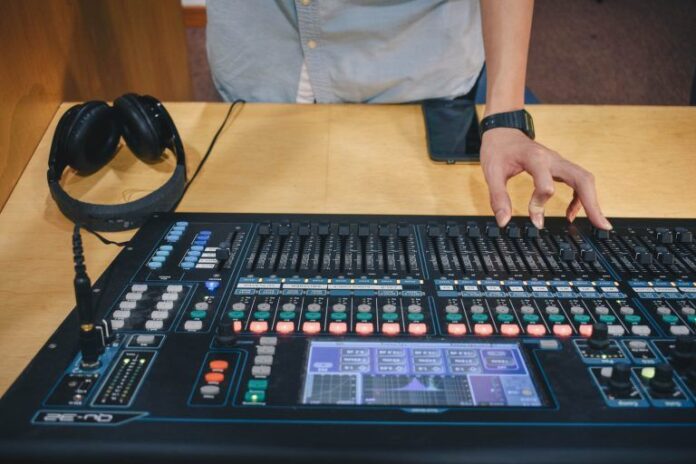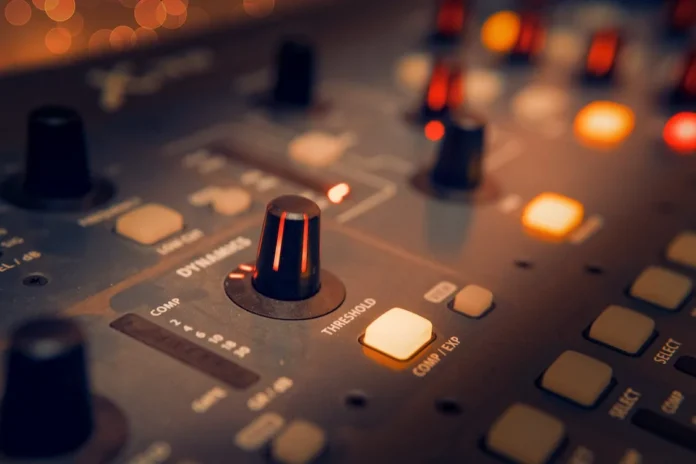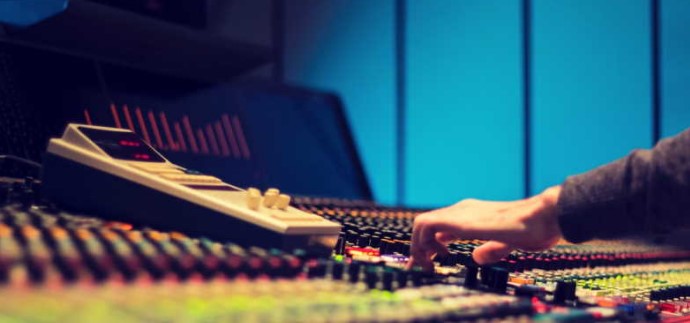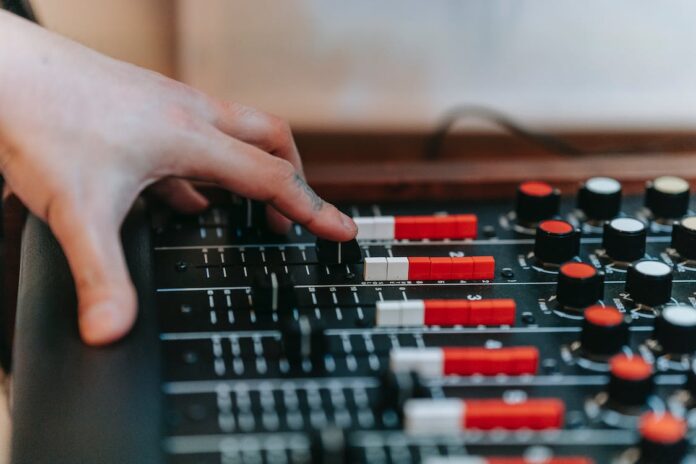Music production is an art, and as a producer or sound engineer, you have to treat it as such. Just like any other art, you have to keep learning to stay at the A level of the game in music production.
Hence the necessity to always find means to improve your skills. You’ll get some tips here on improving your skills in sound mixing.
Pro Tips to Improving your Sound Mixing Skills

These tips are practical skills that you’ll need to put to work for you to see results. So, be ready to get yourself to work, as you sharpen your sound mixing skills.
Listen to the mix on different speakers and earphone
Listening to your final mix on different earphones and speakers, helps you get the feeling of the mix on different sound output systems.
Automate volume

Depending on the sound you’re working on, there might be disparity in the volume of different parts. The volume of the vocals or the lead guitar might just go down or up suddenly, in the middle of the mix.
Making use of volume automation helps in the regulation of the volume across the audio.
Learn to take breaks when necessary
You need your creative juice to flow effectively when mixing sound. Working for long hours without breaks can affect your creativity.
So, take a few minutes off to drink water, stretch or even take a little walk. Then you can resume back to work.
Mix at a speaking volume
A mistake many producers make is mixing sound at a very loud volume. It is perfectly fine and work-effective if you just mix at speaking volume.
This doesn’t mean that you can’t increase the volume when you need to hear the low ends of the sound.
Join layers together when necessary
Sound mixing has a lot of things to do with you being able to organize sounds together. In cases where there are exact layers of sounds, there’s no reason why you should leave the layers separated.
Let’s say there are 4 layers of kick, and they are fundamentally the same thing. Just join them together. This will help you to have fewer layers of sounds to work with. And this will help or assist in making organizing so easy, and effortless.
Get studio monitor headphones or speakers
You should see this as an investment in your studio. The studio monitors bring out the mixed sound in its originality, unlike other speakers and headphones.
There are tendencies that other speakers and headphones add their effects to the sound, depending on the quality. With the studio monitor headphones and speakers, you’d be able to get good feedback on the work done. It will also allow you pick subtle errors in the mix, because you can hear everything clearly in its raw and original form.
Spend time on important parts
It will be a waste of time for you to leave major parts, to focus on the tiny details that people might not even hear while enjoying the music.
Use up your time on the mix, as a whole. Focus on parts like vocals, lead guitars, etc. You must not forget that people will only focus on those major things.
Listen to your mix casually
Most producers listen to their mix, with the minds and ears of a producer.
That’s a mistake you should not be making. People won’t listen to your mix, like a producer will. So, you have to listen like a random individual trying to enjoy music.
That way, you’ll be able to pick what you should correct, add, or remove some things.
Pay for courses

It’s no news that you have to keep investing in knowledge in whatever you do to keep getting better. Either you buy a live sound mixing course, book or go for advanced training. Keep investing in your mixing skill.
Ask yourself the three power questions
To produce a quality work, you need to know what you’re aiming at. Ask yourself what you’re trying to achieve. Once you know what you want to achieve.
The next question you need to ask yourself is, “why do I want to achieve this?”
Is the end game to create a happy mood with the mix? Or you’re trying to create an emotional mix?
Once these two questions are answered, you should ask how you want to achieve your goal.
This will help you to map out your mixing process, and be effective.
Eliminate the sub bass frequencies in your sounds
Make sure you remove all sub bass frequencies from your sounds, with the exception of kicks and bass. Besides these two mentioned above, don’t rule out any other sound part. Even high pitched hi-hat sounds can contain sub bass frequencies.
Once you find any sub bar frequencies, eliminate them. It fine tunes your work.
Focus fully on mixing, and get into the freelancing market
One of the best ways to get better is to keep mixing, and not just for yourself, but for others. That way, your creative juice is being explored. The more it’s being explored, the more you get better.
Getting better at this takes a lot of time. This means you will need to focus fully on the job.
There are a lot of singers who need mixes on freelancing platforms. Also, there are specific platforms for producers to upload their mixes for sale. This can even bring in more money for you.
Use a reference plugin to compare your mix with any professional mix
Get a good reference plugin that can help you compare your mix with any other similar professional mix. You upload your mix and the similar professional mix. The major function of a reference plugin is to allow you to listen to the two mixes, alongside each other while trying to figure out the discrepancies in your own mix.
This will sure help you to get yourself closer to being able to produce professional mixes, every day.
Listen and collaborate with other people’s works
Exposing yourself to a lot of other mixes helps you get creative in your own mixing.
Conclusion

Your mixing prowess is dependent on the time you can give to it, and how much you can leverage on people who have already gone so far. I hope these tips help your skill and journey.









